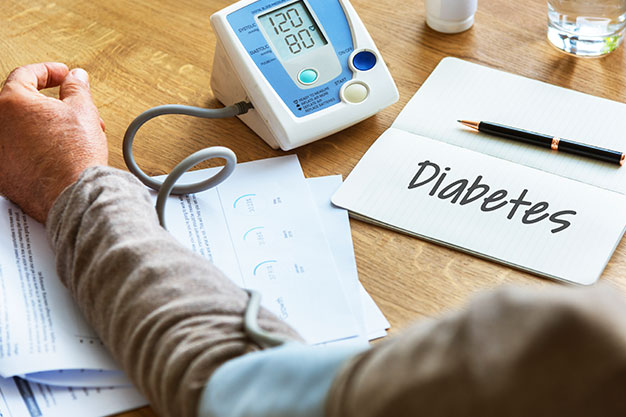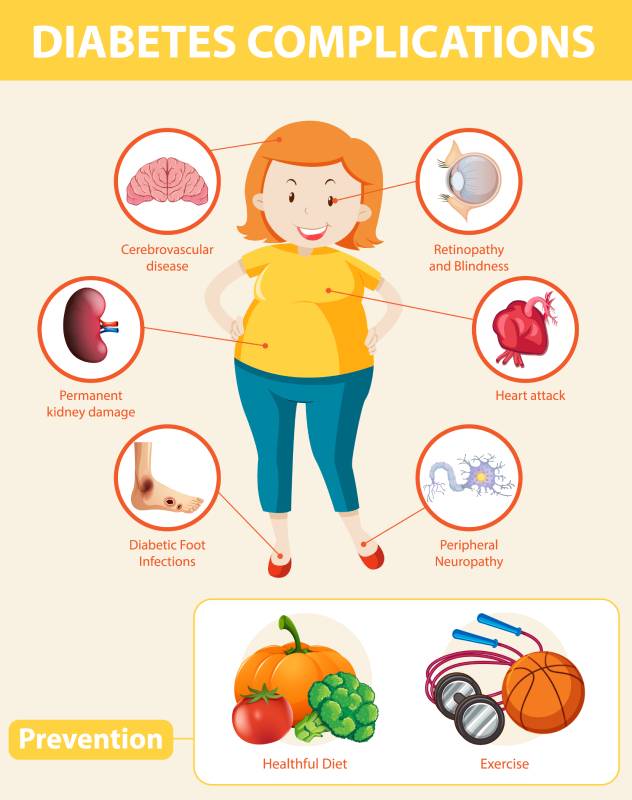 August 24, 2021
August 24, 2021

When diabetes gets out of control, it can negatively affect your overall health. An excessive amount of sugar in your blood can harm nerves and vessels, prompting a wide range of issues.
Diabetes complications often share the same risk factors, where one complication can make other complications worse. For example, numerous individuals with diabetes have hypertension, which deteriorates vital organ functions like heart, brain; eyes and kidneys. Diabetes tends to lower HDL (“good”) cholesterol and raise fatty substances (a sort of blood fat) and LDL ("terrible") cholesterol. These progressions can increase the risk of heart disease and stroke to a great extent. Smoking doubles the risk of heart disease in individuals with diabetes.
How to prevent complications?
Good habits take you a long way, enabling you to prevent the other health-related issues that diabetes can cause. Follow these suggestions to be a part of your everyday fitness good:
Follow a wholesome diet
Maintain ideal body weight
Your blood sugar levels need to remain in these healthful ranges as much as possible:
Get active
Being physically energetic makes your body more sensitive to insulin (the hormone that allows cells on your body to apply blood sugar for energy) allows better control of your diabetes and blood pressor.
Try to get at least 150 mins every week for moderate physical activity along with brisk walking.
Manage your ABCs:
A: Get a A1C check to grade your common blood sugar over 2 to three months; make a goal to stay on your target range as much as feasible.
B: Try to maintain your blood pressor below130/80 (or the target your health practitioner sets).
C: Manage your cholesterol levels.
S: Stop smoking, or don’t begin.
Check your feet every day:
Take necessary care of your skin:
SSB provides you with best of healthcare services we have a team of highly qualified physicians, diabetic counselors, and nutritionists.
Note: It’s better to take a physician’s advice instead of doing anything that makes you more ill. Consult a doctor by taking appointment +7669990182 +7669990183
2025 © SSB Heart and Multispecialty Hospital.